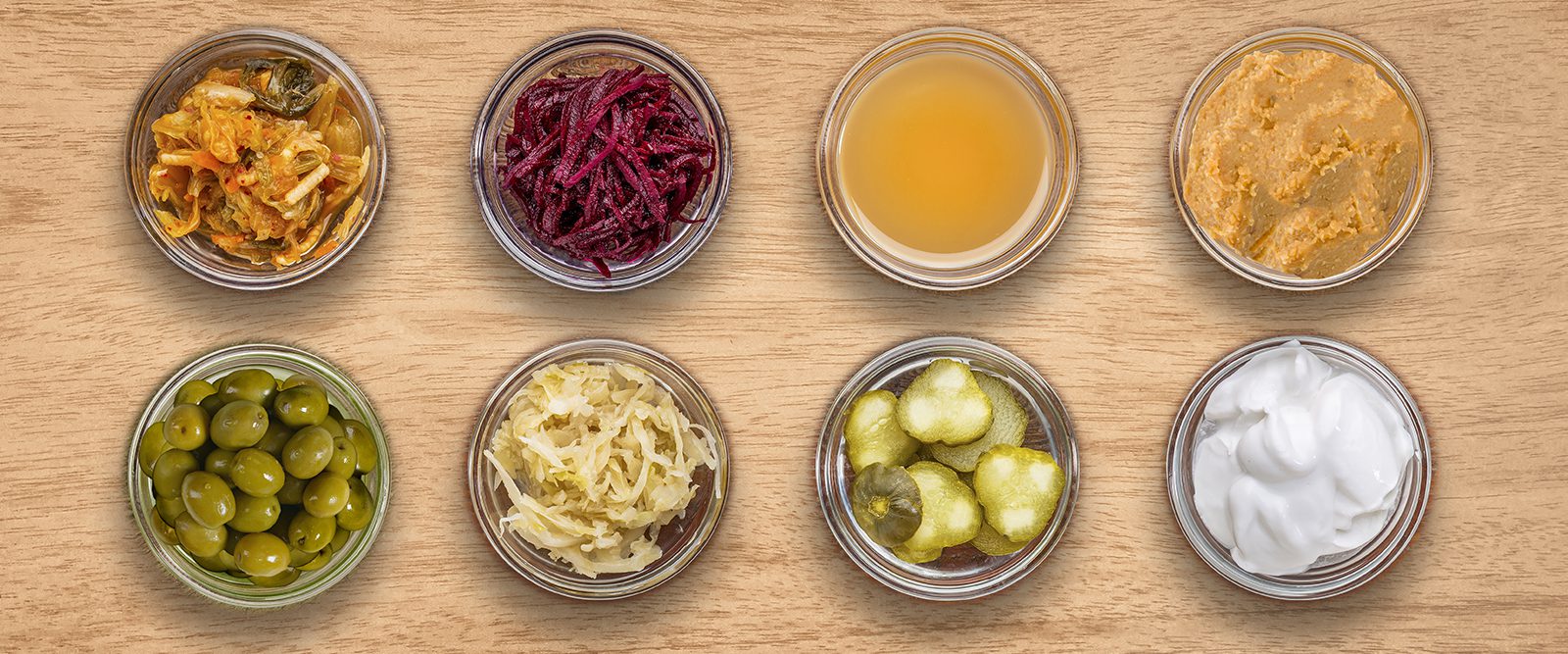Probiotics: What You Need to Know
Two experts explain the role the good bacteria play in gut health and if you need to incorporate more probiotics into your diet.


Chances are you’ve come across a product boasting probiotics — “good” bacteria that live in the gut and support digestive health. While probiotics are naturally found in foods such as yogurt and pickles, they can now also be found as additions to soda drinks and in a variety of supplements.
“Probiotics are active live organisms that can help support a healthy gut microbiome and may confer health benefits,” says Dr. Carolyn Newberry, a gastroenterologist and physician nutrition specialist at NewYork-Presbyterian/Weill Cornell Medical Center. “Incorporating more probiotic, fermented foods in the diet can help some people.”
Says Georgia Giannopoulos, a registered dietitian and manager of NYPBeHealthy, NewYork-Presbyterian’s health and well-being program: “There’s been a lot of research looking into how probiotics can benefit us. We’re still learning what strains work best for certain conditions, but in general, they’re great for keeping your gut healthy.”
Health Matters talked to Dr. Newberry and Georgia to learn more about probiotics, including if people should incorporate more of them into their diet and what to watch out for.
What foods contain probiotics?
Georgia: Probiotics can be found in yogurt with live and active cultures. That’s an important thing to look for when you’re at the grocery store, because if the product’s label doesn’t note that, it may not contain probiotics. Kefir, a type of fermented milk, is another great source of probiotics. They’re also found in things that have been pickled, including pickles and sauerkraut, and miso, which is made from fermented soybeans.
Dr. Newberry: Plain, unsweetened yogurt and fermented foods, like kimchi and sauerkraut, could certainly help support a healthy gut microbiome.
How are probiotics different than prebiotics?
Dr. Newberry: Prebiotics, generally, are different types of digestible fibers that can help support probiotic growth; the probiotics consume the prebiotics. The health benefits of ‘prebiotic’ drinks, including those with apple cider vinegar aren’t scientifically validated – you’re probably better off eating an actual apple, and getting your fiber that way.
What are your thoughts on probiotic supplements?
Georgia: There are so many of them on the market now and in a variety of forms. As with any supplement, vitamins and minerals included, it’s always a good idea to talk with your healthcare provider before you start taking them. There is no one size fits all. Someone who knows your medical history can guide you in the right direction.
Dr. Newberry: I think there’s a misconception that probiotics are something that everyone should be taking, and that you need to spend a lot of money on a fancy supplement when the actual health benefits of these products are still unclear. I tell my patients that the best thing you can do for your gut is to eat more whole foods, adopt a more plant-based diet, and limit processed sugars and additives.
Are there people who would benefit from probiotic supplements?
Georgia: A person who’s taking antibiotics may benefit since antibiotics may clean the gastrointestinal tract of both good and bad bacteria. Always consult your healthcare provider before you start taking probiotics.
Dr. Newberry: There’s a small amount of data that suggests that taking probiotic supplements may help support and nourish the gut microbiome during antibiotic treatment, particularly if you’re critically ill.
Can probiotic drinks help with gastrointestinal symptoms?
Dr. Newberry: People should look at the contents of probiotic drinks like kombucha before they drink them. They should keep an eye out for sugar alcohols and sweeteners in these drinks, which cause a lot of bloating. It’s possible that a tiny amount of fermented product would be helpful for patients, but if they have lots of sweeteners or additives, they might cause more symptoms overall and end up hurting the microbiome more than helping it.
Besides digestive health, how else can probiotics help?
Georgia: We know they’re instrumental in keeping the digestive tract healthy, but we still need more evidence to see exactly how else they can help. Early studies have shown that there could be a link between gut bacteria and obesity. I think the idea of your gut bacteria affecting your weight surprises a lot of people, but it just goes to show how important your digestive tract is to your overall health.

